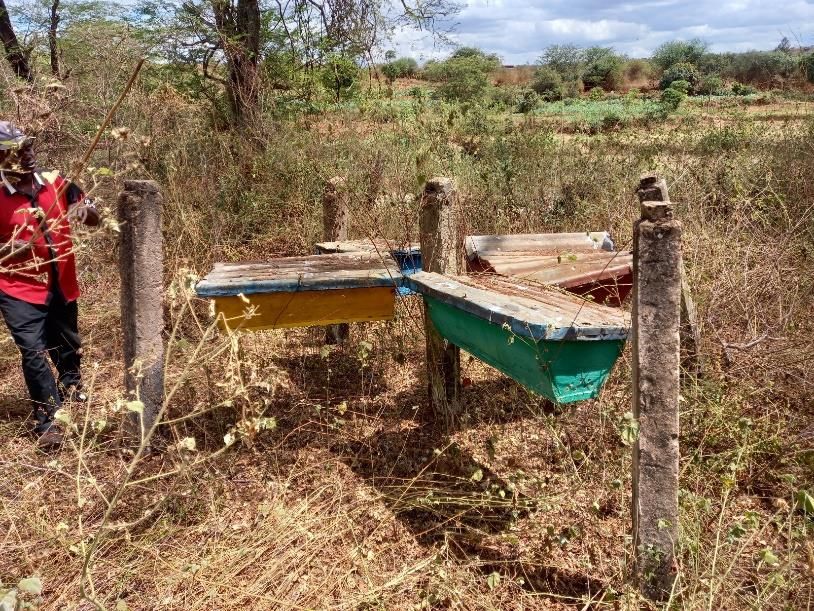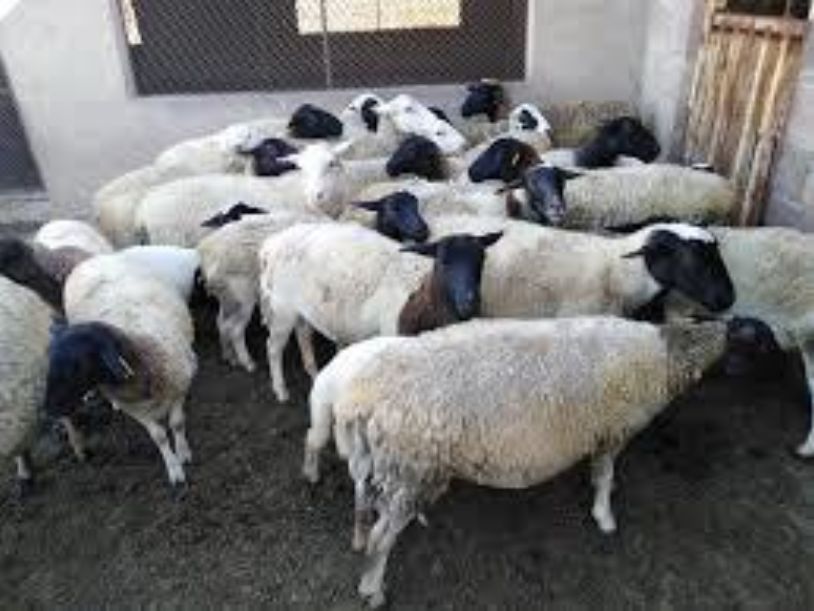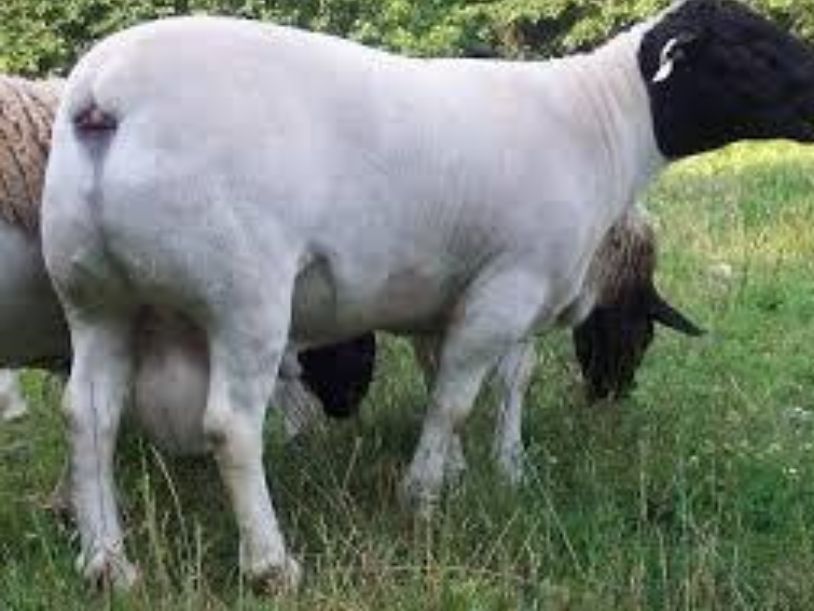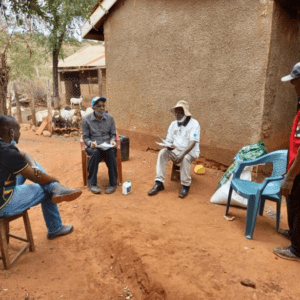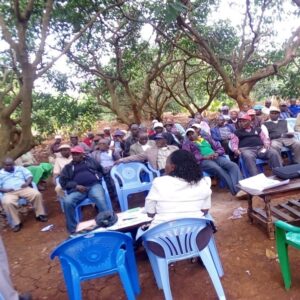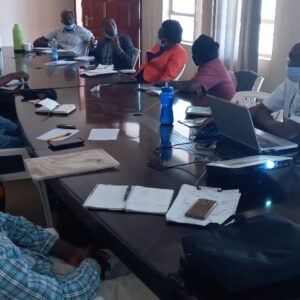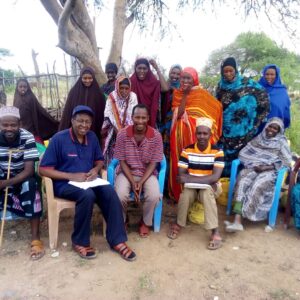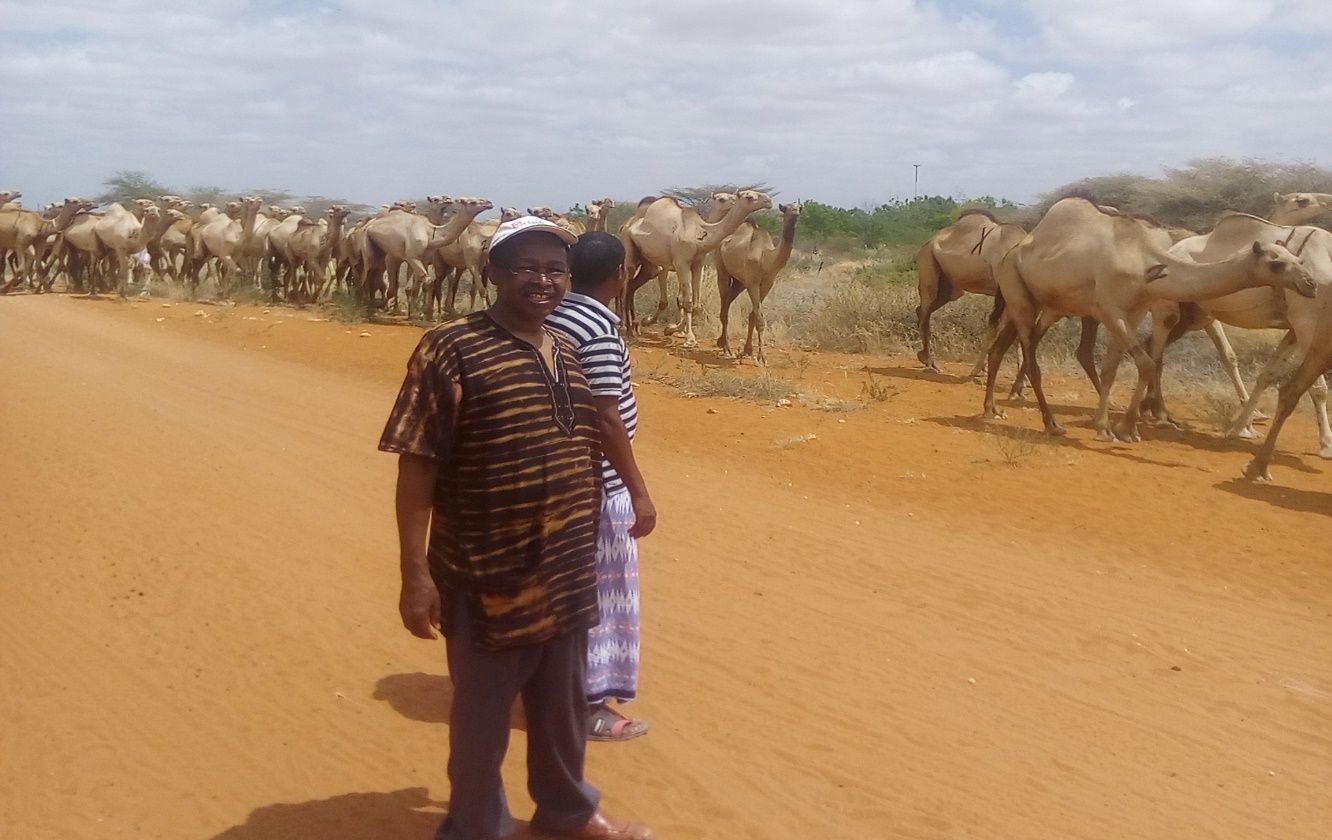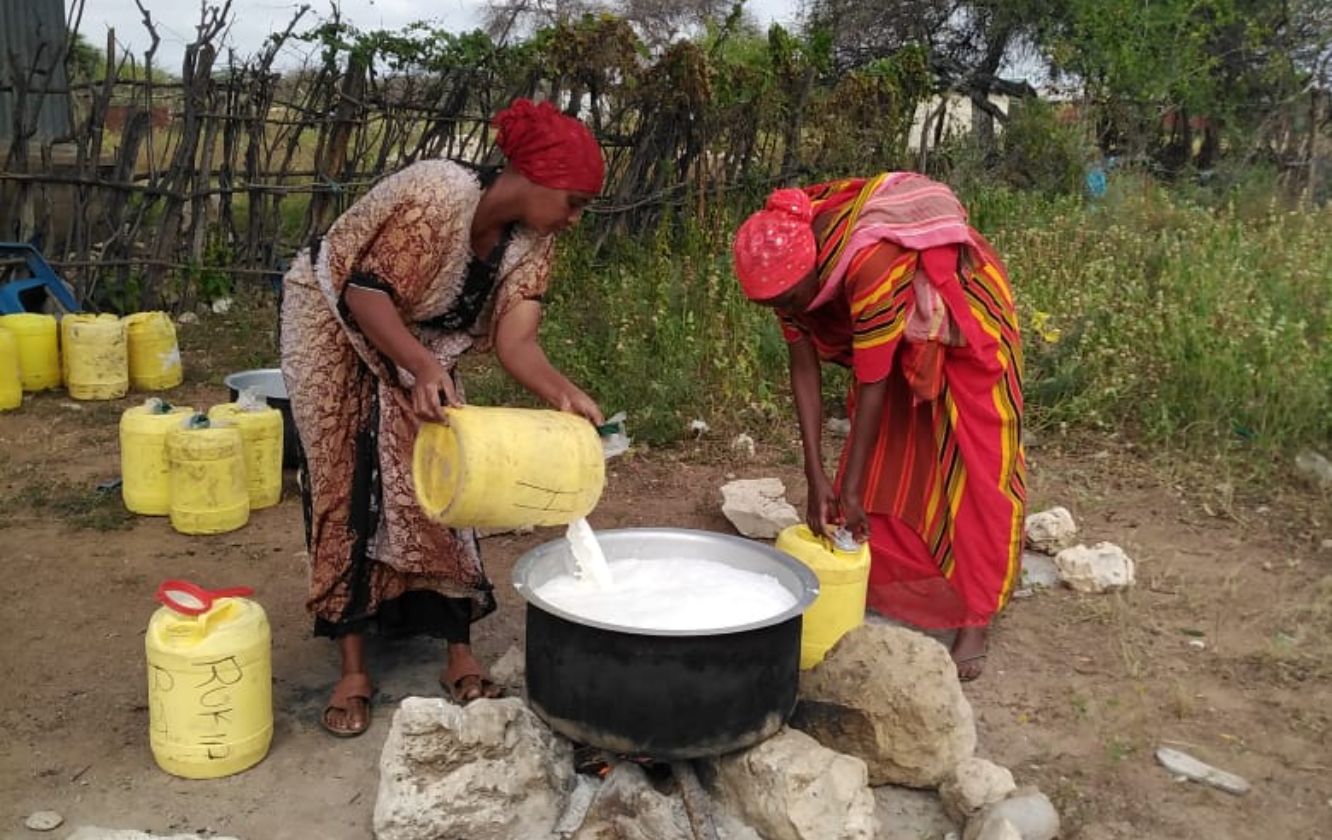Makueni Dorper Project Nkubu Icons Investment Ltd has leased a...
Read MoreNkubu Icons Investment Ltd has leased a 25-acre farm located approximately 5 km off
the main Mombasa-Nairobi Highway. It is to the East of Emali Market off Emali-Wote
road. The area is suitable for production of Dorper sheep. The task was advertised. FFD
expressed interest and won the bid. The Investment Company, Nkubu Icons Investment
Ltd sought technical consultancy services from Future Focus Development and Commissioned FFD to carry out this assignment. From our pool of experts, some with over 30 years’ of consultancy experience in agriculture and livestock related value chains we
deployed 2 senior experts with relevant experience.
The study was to provide technical advice on the suitability of sheep farming enterprise to facilitate an informed decision-making process by the board: Whether venture into Mutton Production or Breeding. The consultants made a visit to the farm. At the time of the visit, the farm had a total of 31 heads of sheep that were in poor health condition; some due to age, inbreeding and poor nutrition. This farm has well-drained soils which seems to have been exhausted through farming activities over many years. It has a river frontage, a long Muhooni River. The Nkubu Icons Investment Ltd commissioned FFD to provide a) A comprehensive inventory report on the current status of the farm; b) A report incorporating recommendations on improvements/optimizations in all areas captured in the Scope of Work; c) Cost estimates of implementing the recommendations/improvements highlighted.
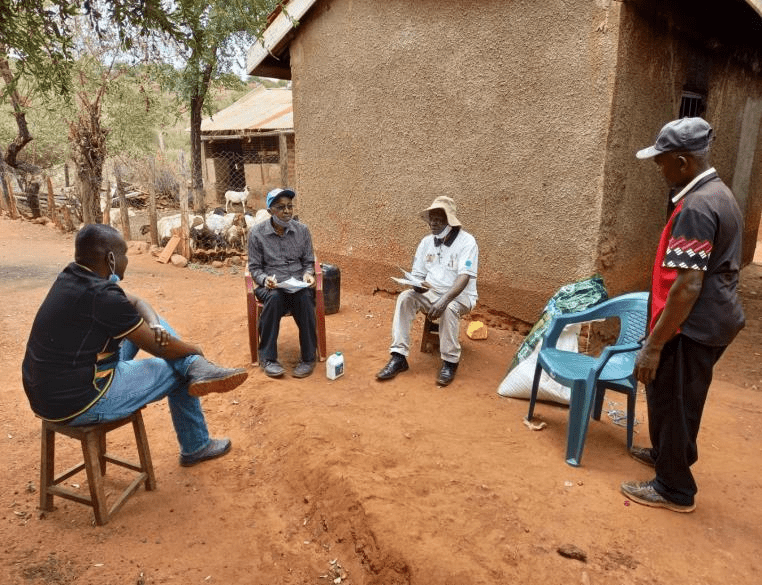
The findings and the proposed interventions of this study are discussed in the pages of this
report. The team highly recommends that Icons venture into establishing a breeding enterprise that will be supplying dorper breeding stock to farmers.
Irigiro Organic Avocado Group
Irigiro Organic Avocado Group Background Irigiro Mofarm organic fresh avocado...
Read MoreFFD Transnzoia County Dairy Value Chain NARIGP Project Report
FFD Transnzoia County Dairy Value Chain NARIGP Project Report https://www.youtube.com/watch?v=xeT87O5NEL4&authuser=1...
Read More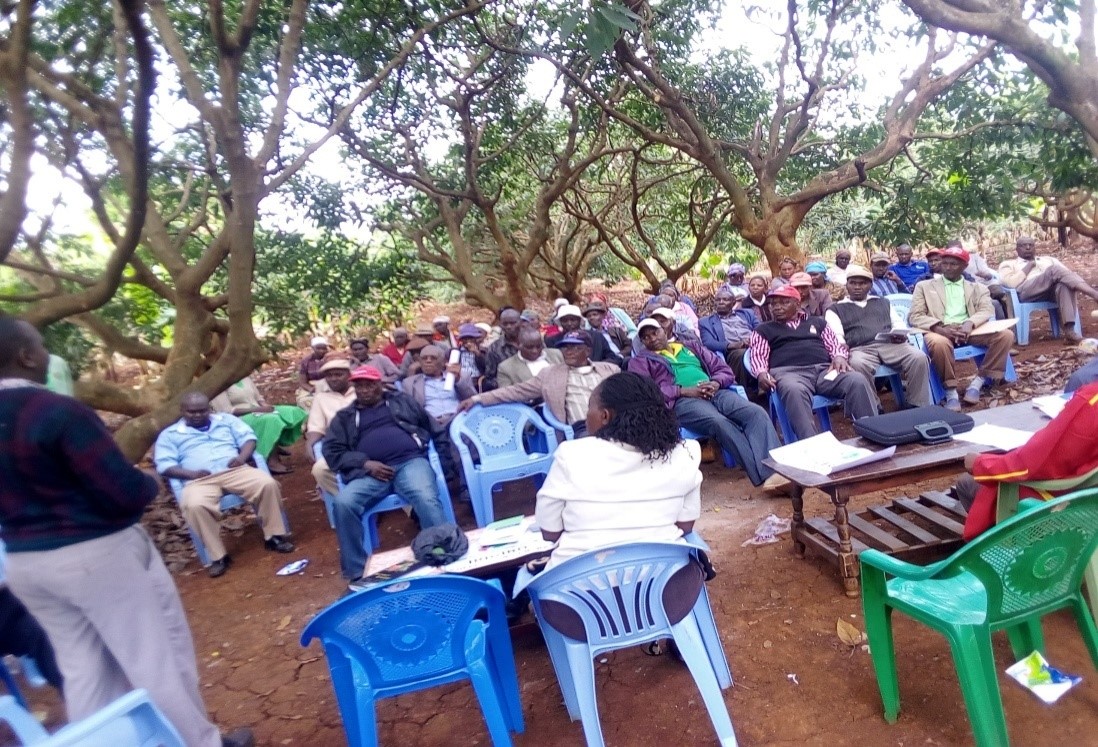
Background
Irigiro Mofarm organic fresh avocado producer group was registered in July 2017.The group is located in Muthithi ward in Kigumo sub-county of Muranga County, Kenya. The group has 90 registered members where 47 are male and 43 female. Only 5 of the members are youth.It is estimated that each member has on average between 10-20 plants of avocado (this comes close to a total of 180-1800 plants).
Baseline situation
Future Focus Development (FFD) first carried out a baseline study to understand the situation on the ground. It was established that apart from avocado production, members also grow mangoes, tissue culture bananas and also dairy farming. An average farmer in the locality rears one cow. This explains why the county government prioritizes in dairy, avocado and banana value chains. The group members are at an altitude of 1421m above sea level.
According to Kenya avocado commodity business plan 2015-2025, Muranga County leads in the production and exportation of avocado from Kenya. The county accounts for 55% of the entire avocado produced in the country, the report records.
Among the key challenges small producers face in a rural setting in the county, are limited extension services, inaccessibility to credit facilities and limited market linkages among others. Before the formation of the group, members of Irigiro had suffered serious exploitation from brokers. Middlemen in the area buy avocados from farmers at as low as Kshs3.00 per piece for all avocado varieties (Hass, Fuerte and local varieties). The farm-gate price of an extended bag of between 60-80kgs was bought at a throw-away price of Kshs400.00.
Capacity building
FFD was contracted through AGRA to carry out capacity building of horticulture and small scale producers in Muranga County among others in the IFAD/Treasury funded Programme for rural Outreach in for Financial Innovation and Technology (PROFIT). The project conducted capacity building sessions in partnership with financial institutions, Ministry of Agriculture and other stakeholders in the avocado value chains. The capacity building included training on production, financial management and marketing.
Contract farming
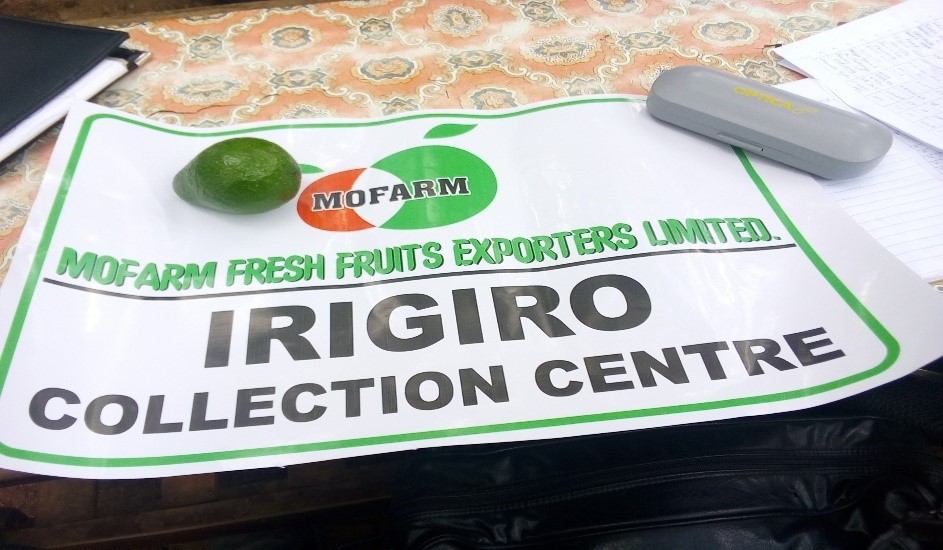
One of the group’s five Collection centres
The Project in partnership with the Ministry of Agriculture at the county level assisted linking the irigiro farmers to Mofarm fresh fruits exporters limited, a local company that deals with exportation of fresh organic fruits and vegetables. Mofarm is located off Tafuta road, Utawala in Nairobi (website: http://www.mofarmexporters.com). “The company has its own extension officer and from time to time conducts both internal and external audits to ensure farmers abide with the set production and quality standards” says Irigiro chairman, Mr. Kamande. Each individual member is required to sign a committal letter stating that all farm produce must be produced organically without use of conventional chemicals such as fertilizers, herbicides, pesticides and fungicides adds Mr. Kamande. The company has organized five collection centres where farmers deliver their crop and the company with their own transport collects the produce from the farm.
Financial and market linkages
According to the contract, Hass avocado variety attracts Ksh65 per kgs while the Fuerte is bought at Kshs5 per piece. However, the Hass variety attracts an annual bonus of Kshs5 per Kgs.
Farmers access banking and credit services at Kenol shopping centre, some 15km away.
The main financial institutions are Equity bank agents, Mentor Sacco MFI, Amica MFI and Kenya Women Finance Trust (KWFT) bank among others. The group has opened a bank account with Mentor sacco (account No.1200000040). Payment is made through this account before sharing the money to members according to their production.
What was the turning point?
Capacity building of members on group governance and leadership management, avocado production, financial management all facilitated by the Ministry Agriculture, SMEP, MENTOR Sacco and PROFIT as well as linkages to export market was the turning point to this group.
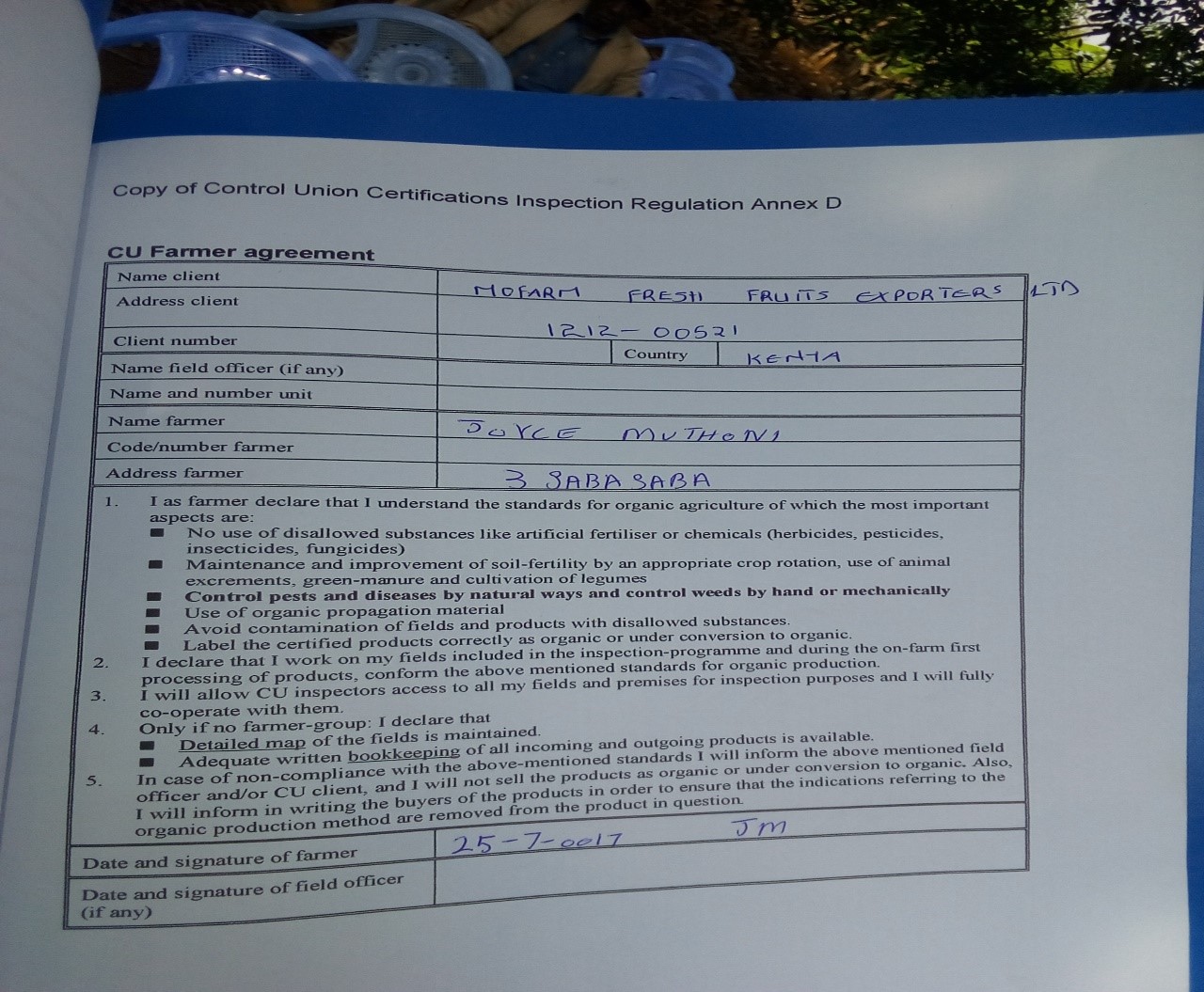
Members Certification Inspection Form for quality Controls Impacts and lessons learnt
Unity is strength! Divided the small scale producers suffered exploitation by the middlemen. It is projected that once the group makes its sales in the coming season the sales will improve members’ incomes and eventually their livelihoods. Joyce Muthoni, a farmer and a member of Irigiro group states that “It will be easier now for members to pay school fees their children”. Joyce continues to say that “already the brokers who have for a long time survived on exploiting farmers have since shifted to other regions”
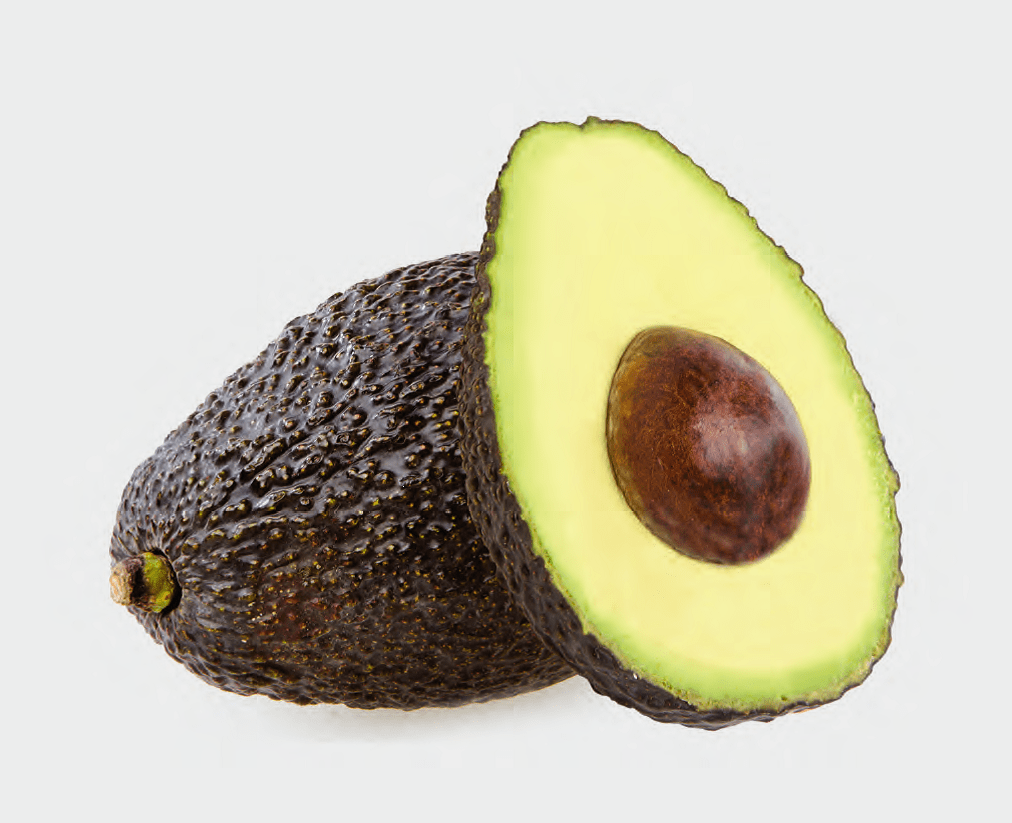
Irigiro Organic Avocado Group
Irigiro Organic Avocado Group Background Irigiro Mofarm organic fresh avocado...
Read MoreFFD Transnzoia County Dairy Value Chain NARIGP Project Report
FFD Transnzoia County Dairy Value Chain NARIGP Project Report https://www.youtube.com/watch?v=xeT87O5NEL4&authuser=1...
Read MoreBackground
Keziah Wangechi was so excited to have been among the few farmers who had qualified to receive a certificate of participation in the livestock improvement program of the Kenya Dairy sector competitiveness program (KDSCP). In her late thirties, Keziah is a mother of four; 2 boys and 2 girls. The first born son is in secondary school (form two) while the rest are in primary school. She has a secondary education. Her husband works as a teacher in a nearby centre to supplement the family income from the cows. The family has 12 acres of land and keeps 4 mature cows and 4 heifers. As a member of Miharati Farmers cooperative society in Central Kenya, she was not satisfied with the level of production of her cows: 6 litres of milk on average from 3 cows. This made an income of Ksh.13, 000(US$ 153) per month.

KDSCP/FFD Intervention
To acquire more skills in dairy management, Keziah would travel by public means to the training centre some 50km away once per month to attend the training sessions with other farmers from some 12 other cooperative societies. Future Focus Development (FFD) was contracted by KDSCP to coordinate these trainings for two years.”Now I have tasted the fruits of my determination and commitment”. She has now paddocked her farm, use AI in improving her cows both Frisians and aryshires breeds, planted improved fodder of different types, is keen on farm record keeping, has put up a 30,000 litres water tank to harvest rain water from the family house and has just completed a permanent guest wing.”Now”, she adds “I have done all this in addition to paying my children school fees. I deliver 35 litres per day (10 litres per cow on average).This has increased my monthly income to 26,000(US$ 308). Moreover I have improved my farm hygiene and have not lost any calves since my training”. She says, pointing at her 4 heifers. Before joining the training mastitis was a common problem on the farm. This is no longer the case. Members of her cooperative and neighbors are frequenting her farm to learn the secret of her increased milk production. She is eager to teach and carry out demonstrations to the other farmers especially on home-made ration, another skill she learned during an exchange visit facilitated by the program last year. This has reduced her cost of inputs now that commercial feeds are very expensive.
KDSCP Effects on the Cooperative
On the other hand the cooperative has not been left behind in that in 2009 when KDSCP/FFD came in to partner with Miharati dairy cooperative society it was collecting 2,400 litres per day and had a cooler of 5,000litres capacity. Now they are collecting 3,500 litres per day. This has made them to procure another cooler of 10,000litres capacity. The management of the cooperative recently invited the KDSCP team to discuss strategies of launching Livestock Farmers’ Field Schools (LFFS) to increase farmers’ production capacity.
Future Trends
Apart from dairy, the family has other enterprises operated on subsistence basis such as wool sheep, indigenous chicken and maize production. Asked whether she has achieved her objective, keziah was quick to reply” of course not. My next step will be to conserve fodder into silage for feeding my cows in the dry months, put up a zero grazing unit and then construct a biogas to cut down the family energy costs. With the improved breeding and record keeping I look forward to adding value to my cows by registering them with the Kenya Livestock Breeders Organization .Today I am proud to be associated with cows. It pays to be a dairy farmer!!”Kezia aims at achieving a production of 40 litres per cow per day.
“the Lord plans to prosper, give you a future and a hope…” Jer 29:11
Keziah: Now a Proud Kenyan Dairy Farmer
Keziah: Now a Proud Kenyan Dairy Farmer Background Keziah Wangechi...
Read MoreFrom a Second Hand Clothes Dealer to a Dairy Cattle Service Provider
From a Second Hand Clothes Dealer to a Dairy Cattle...
Read MoreA case study of a proud Women Domestic Worker in the slums
A case study of a proud Women Domestic Worker in...
Read MoreBackground
“Listening to Mary Gichuki referring to the different botanical names of the fodder trees on her compound, one would mistake her for an agricultural Extension office…” This was a confession from Dr Sigh, a research officer and a lecturer from India–University of New Delhi. He made this statement during a recent visit by international delegates who visited the family ‘s “Bamato” farm in November 2011.The team of 38 delegates (from Africa, USA, Latin America Europe and India) were part of a team of about 400 participants of a conference on Technology transfer in Nairobi.
Mary’s farm was one of those that had qualified to be visited for she had made a breakthrough in one of the Key areas many small scale dairy farmers had failed: the farm is a success story of its own kind in terms of integrating fodder production and crop production systems.
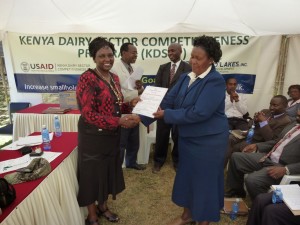
The Family and Location
Mary combines as a dairy farmer, a business lady and seed and tree seedling service provider. She is a mother of four boys. All of them now are professionals in employment. She is in her late forties. Her supportive husband has recently retired from Kenya Postal services to join her on her new business on their farm. The four acres farm is located in Gitiha (Lari), Kiambu County of central Kenya. It is 25 Km west of Githunguri some 50 Km North of Nairobi City.
Education and Business
Asked about her education background she had this to say.” I attended my early primary education in Bongo in South Kinangop of Nyandarua County. I joined Moi girls’ secondary school in Eldoret up to form four. As an early timer, I met my lover and married him. Then I trained as a tailor”.

Farming and Dairy Service Provision.
In 2006 Mary was identified for a training organized by ICRAF at Nakuru. The training was on fodder seed and nursery management as well as business skills. Following the training the 28 participants drawn from national level resolved to form an organization that would help them expand this initiative. This is when Kenya Association of Tree Seeds and Nursery Organization (KATRESNO) was registered. Mary took this training very seriously that she is the most aggressive of the 5 active service providers. She is the only active woman.
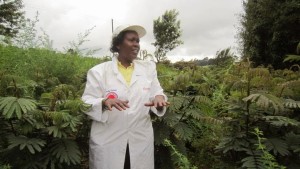
”Mary, what are you involved in?”
“My package includes training farmers, sale of technical brochures on fodder trees, sale of fodder seeds and seedlings and actual demonstration on my farm as well as field days. I have the following varieties: calliandra, sesbania sesban, tree Lucerne, and lupin, mulberry, sunflower, purple vetch and, trichandra. I also sell climbing bean seeds as a food security crop”.
“Mary, is this service viable and sustainable?”
In response she had this to tell the delegates.
”I have done the following recently: bought 4 high quality in-calf heifers, an electric chaff cutter ,a water pump, 100 chairs and a tent for quests during trainings which is also available for hire, a plot … and am able to service Kshs 300,000 loan comfortably.
I have also created employment opportunities to 3 women. My seed stock stands at Kshs 200,000 and clothes around 150,000”.
Mary says she is very grateful to Future Focus Development (FFD) for facilitation in the Nakuru training jointly with ICRAF in 2007, the linkages to dairy Cooperatives and Livestock farmers Field schools, Brookside ,Kenya Forestry Research Institute (KEFRI),Ikinyukia ( a KARI trained fodder seeds promoter in Githabai,South Kinangops) Royal Media services (“ Kikuyu Inooro FM”) ,Pwani FM, and the ministry of livestock Development for linkages to farmers training centers(Wambugu Agricultural Training Centre in Nyeri, Waruhiu in Muranga, Njambini inSouth Nyandarua, Oljoro-orok in Nyandrua North) and the Nairobi Agricultural show for the last six years now.
However, she says the only organization that has given her a certification of recognition is the Kenya dairy Sector Competitiveness Programme (KDSCP), Kinangop Milk Shed. She earned this as the most consistent Service provider in the milk shed.
Mary is most grateful to her husband Mr. Gichuki and her children for their support hence the acro-name of the farm-“BA-MA-TO” (Baba, Mama, and Watoto: Kiswahili meaning Father Mother and Children).
Challenges
Mary’s main challenges as a service provider in dairy includes:
- Means of transport to meet the ever increasing demand for training farmers.
- Meeting the high demands for high quality fodder seeds.
- Low level of adoption by farmers.
- Combining both my clothes business and services to farmers.
Future Plans
The future plan of the farm includes:
- To fully establish BAMATO into a commercial demonstration farm.
- Raise 5 high yielding quality dairy animals supplying 100 litres of milk daily
- Establish a fodder shop for fodder seeds.
- Expand the existing fodder tree nursery from 3,000 seedlings to 7,000 seedlings.
Contacts
Keziah: Now a Proud Kenyan Dairy Farmer
Keziah: Now a Proud Kenyan Dairy Farmer Background Keziah Wangechi...
Read MoreFrom a Second Hand Clothes Dealer to a Dairy Cattle Service Provider
From a Second Hand Clothes Dealer to a Dairy Cattle...
Read MoreA case study of a proud Women Domestic Worker in the slums
A case study of a proud Women Domestic Worker in...
Read MoreProject Background
National Agricultural Rural Inclusive Growth Project {NARIGP} is implemented in 22 Counties in Kenya. Future Focus Development {FFD} was identified as the Private Service Provider to implement the Dairy Value Chain in Trans-Nzoia County. The other three Value chains are Bananas, Tomatoes and Local Chicken.
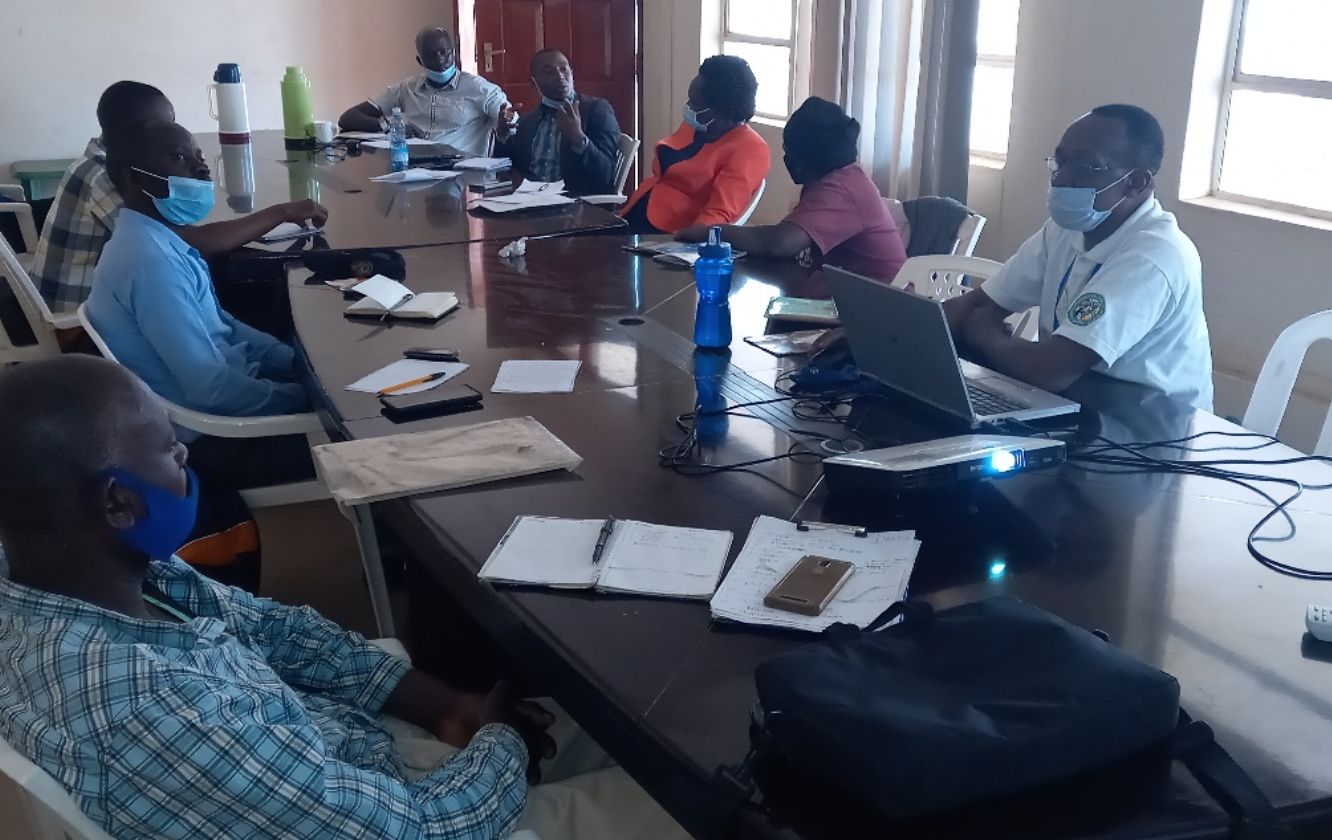
Project Financiers: World Bank/GOK/County Government of Trans-
Project Objective: Increased small scale producers’ productivity and profitability
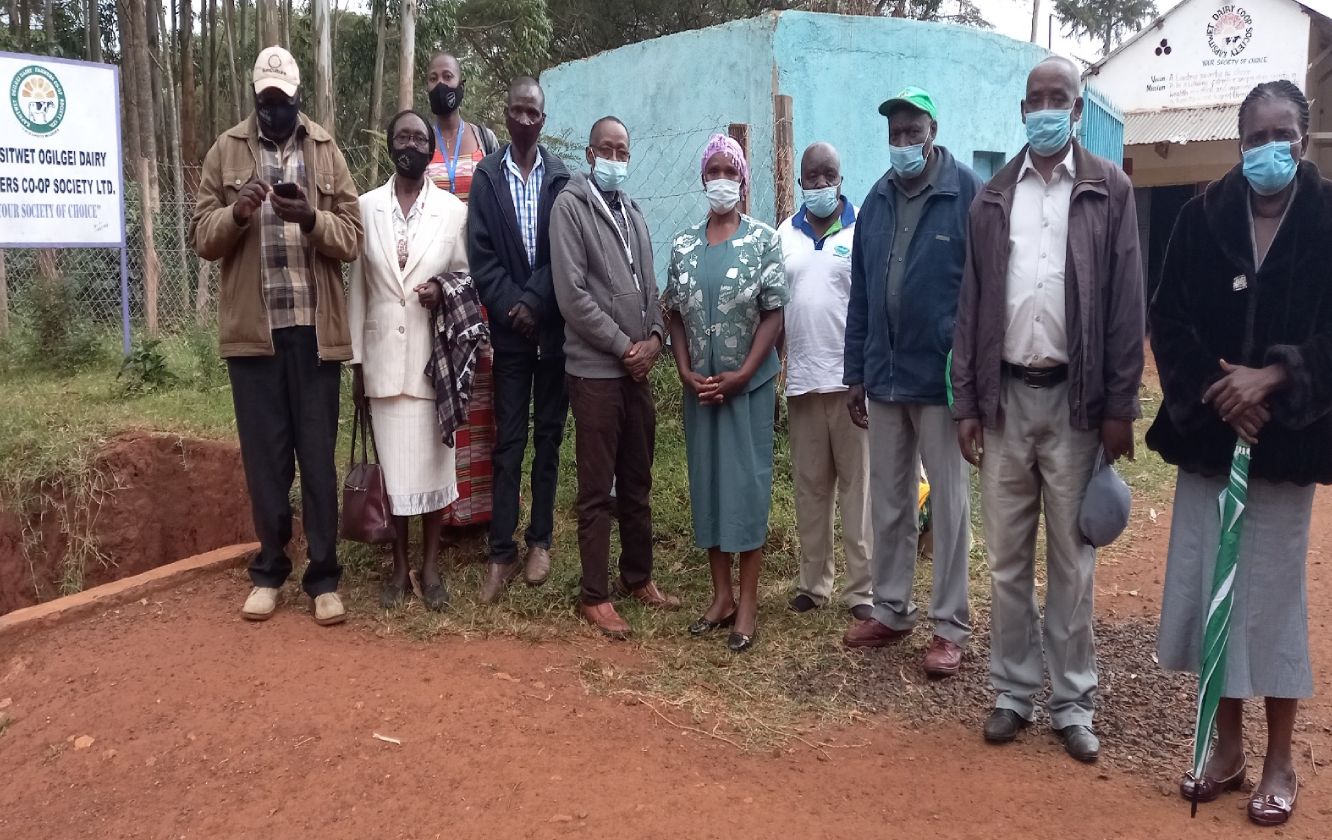
Project scope: Targeting 8 dairy cooperatives and 103 small scale Dairy farmer groups in the entire County {5 Sub Counties}. Beneficiaries estimated as 13,000 members in cooperatives and 2,678 common interest group (CIG) members. The project strategy mainly included capacity building to farmers on identified areas among them clean milk production, fodder establishment and conservation in form of hay or silage, feed formulation for supplementation, breeding improvement, though AI, cattle dip rehabilitation to assist disease control, mobilize farmers towards vaccination programs, milk value addition and marketing, federation of groups to cooperatives, and all other aspect of animal husbandry. In addition, FFD addressed gaps in dairy cooperative such as financial policy, governance and leadership, human resources, a system to monitor milk quality and value addition
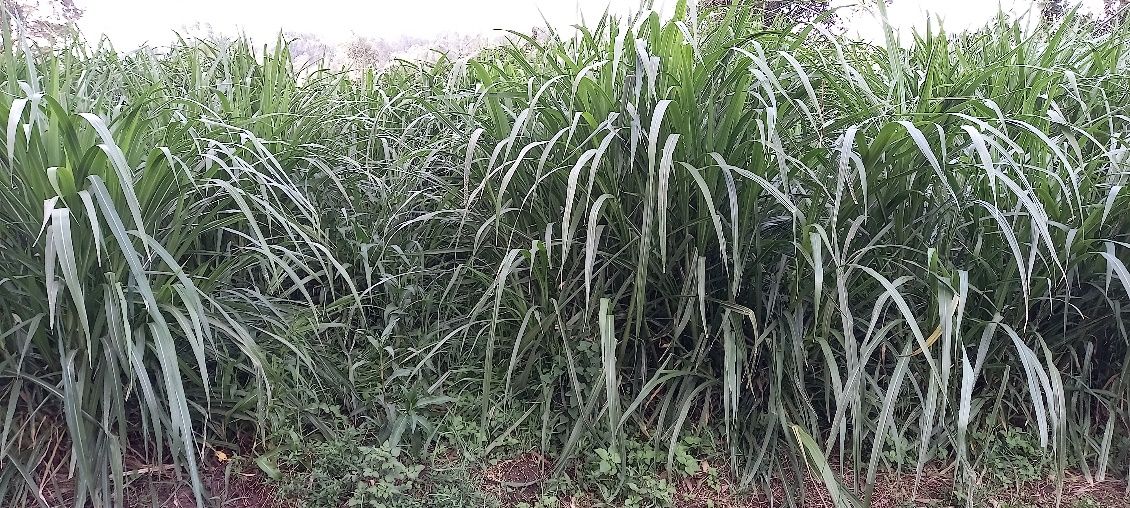
Staff/personnel: 7 Technical Field officers supported by 6 Consultants/Subject Matter Specialists Project targets and Achievements {January 2021- April 2022}
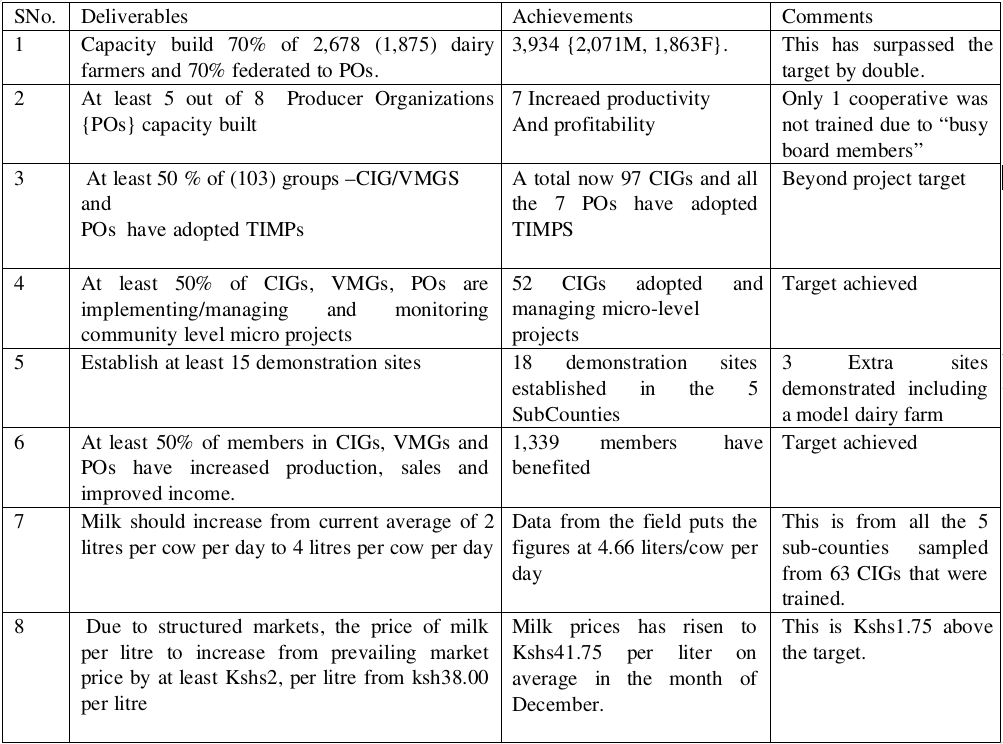
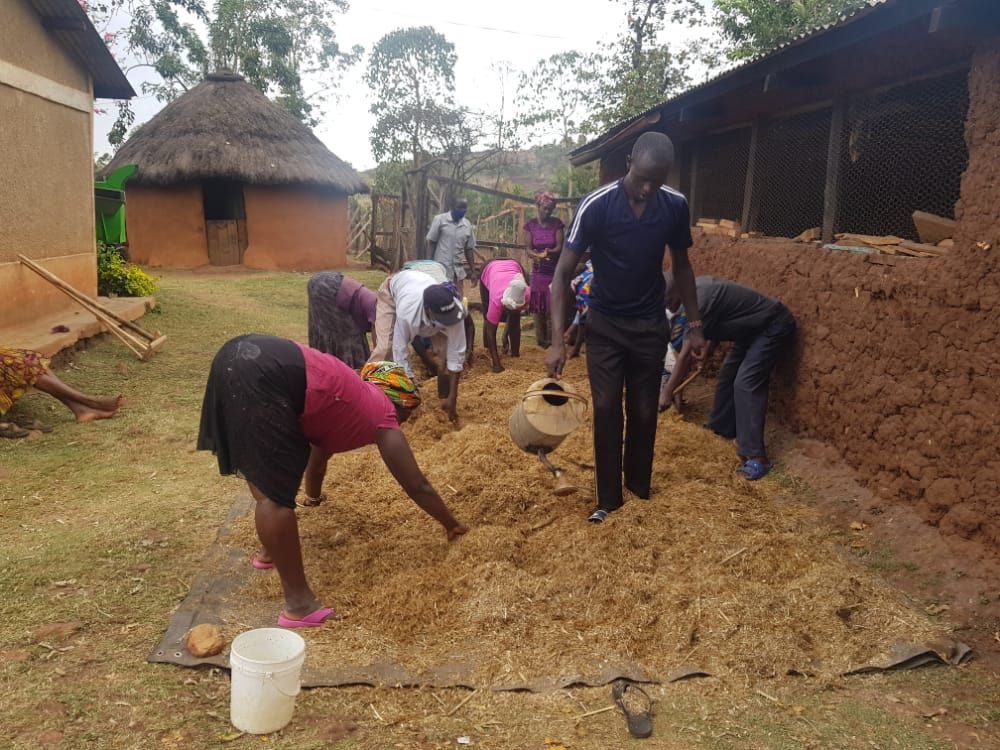
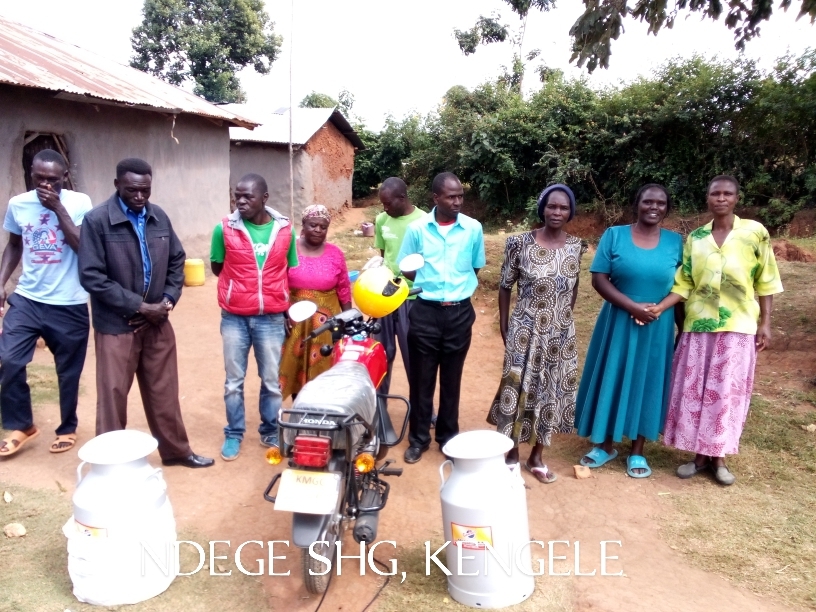
Irigiro Organic Avocado Group
Irigiro Organic Avocado Group Background Irigiro Mofarm organic fresh avocado...
Read MoreFFD Transnzoia County Dairy Value Chain NARIGP Project Report
FFD Transnzoia County Dairy Value Chain NARIGP Project Report https://www.youtube.com/watch?v=xeT87O5NEL4&authuser=1...
Read More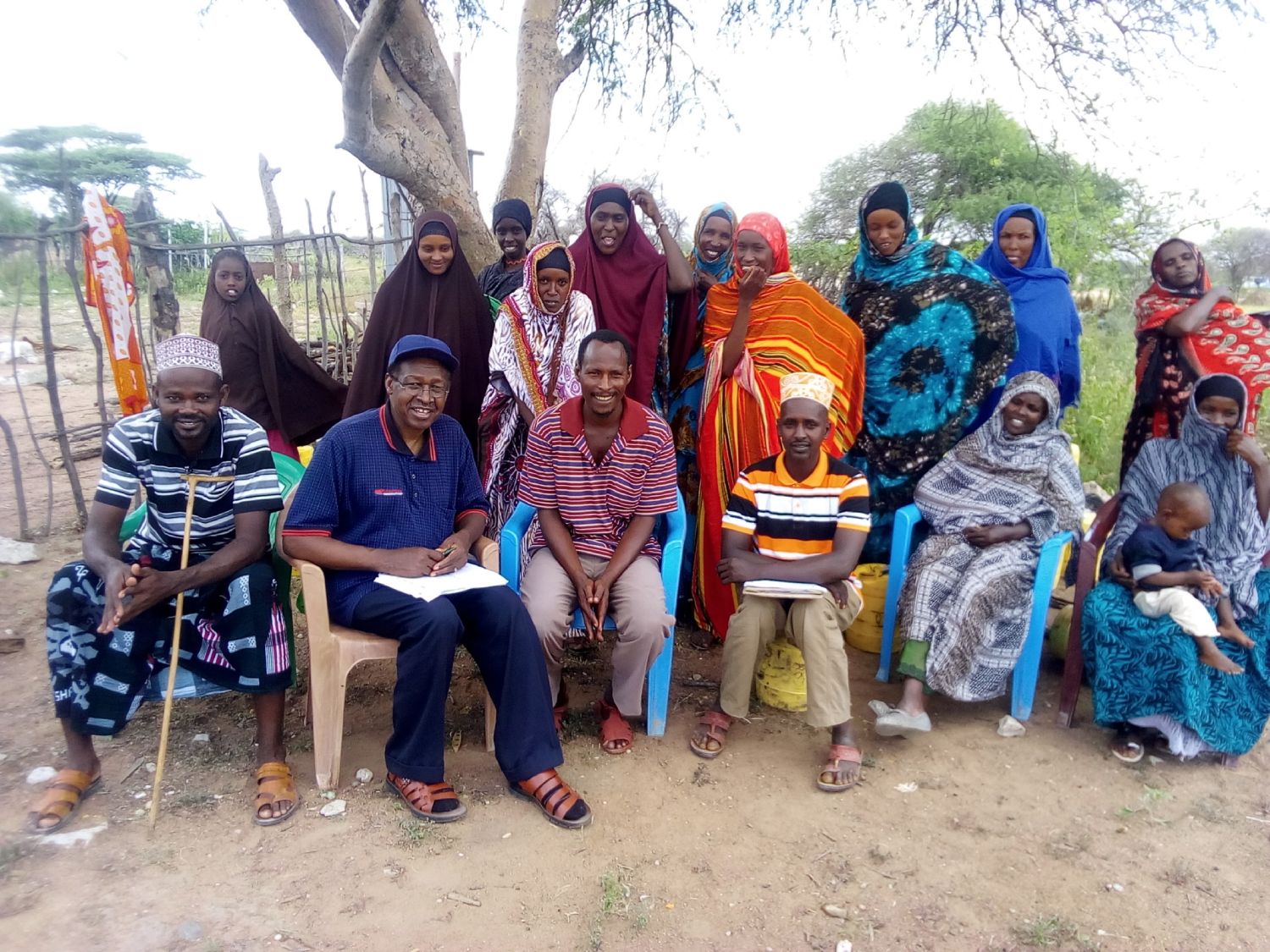
Isiolo County is one of the 47 counties in Kenya located in the North Eastern region of the country. Kenya’s camel population stands at of 2,970,911 and according to the information received by the consultant from the LMS office in Isiolo, camel milk is considered the County’s “white gold” since majority of the households in the County depends on the camel for their food security during the droughts, incomes and livelihoods. Most of Isiolo County’s camels are concentrated in three main administrative wards, viz. Isiolo, Merti and Garba Tulla.
The Kenya Livestock Market Systems (LMS) Activity is USAID funded in 5 Kenyan ASAL Counties {Viz Garissa, Wajir, Isiolo, Marsabit and Turkana}. It seeks to strengthen people’s resilience in Northern Kenya and reduce poverty, hunger and undernutrition. This will be achieved through ‘expanding and diversifying viable economic opportunities’ and ‘strengthening the community capacities for resilience and growth’
The applicants are 48 (42F, 6M) members from three women milk marketing groups. These are Adhesi Self Help Group, Kulamawe dairy women group and Kinna women group, all from Garba Tulla ward. These business groups have been in the camel milk business for close to ten years. They have faced challenges such as milk wastage as a result of poor milk handling, spoilage due to use of plastic containers that are difficult to clean, exploitation by milk brokers, poor milk prices, lack of a united voice by farmers to lobby and advocate for better milk prices among others. Our objective is to come together and form a dairy marketing cooperative that plans to add value to our milk by pasteurizing it at Classic Foods Ltd and other processors and making part of it into yoghurt (on pilot basis). As such, our business will take a cooperative model. The cooperative will be run by a board of management (7 members) and also a supervisory board (3 members-one from each group). Women, men and youth will be represented at all leadership positions.
These value added quality products will be sold to camel milk holding ground in bulk from the mini-dairy plant over 90 km away. We plan to transport our products in bulk by imported special refrigerated aluminium milk cans (with an insulator) in order to control microbial multiplications. Specifically two business partners have shown interest in procuring our pasteurized camel milk. One is Classic foods Ltd in Isiolo who is currently expanding his capacity to also handle cow and goats milk. The other partner is a camel milk processor in Nanyuki. Ngamia Milk suppliers. These partners willing to enter into an agreement with us on condition that they are assured of quality. Other potential buyers are Anolei, Afro Natural and Tawakal in Isiolo. However, other willing buyers will be free to purchase our products from our Kulamawe mini-dairy plant should this be the agreement. We project that we will also target other markets in Isiolo town by supplying to boda boda youth operators and businesspersons who will make supplies to their already established customer base such as institutions and individual customers. We will in the long run target other possible market outlets in Nairobi and other towns in the country. To achieve our dream we propose to mobilize resources and carry out some of the following activities: drilling a borehole and install a solar system, put up a mini dairy plant at Kulamawe Centre, install a cooler and refrigeration and pasteurizing equipment, purchase mezzican food grade calibrated plastic milk containers and yoghurt making.
In this project, we plan to collaborate with another local development partner in Isiolo, Lay Volunteers International Association (LVIA) from Italy, and ACDI/VOCA for financial assistance. LVIA however, has received some funding from DFID.
The total project budget is kshs12, 745,000M. We request ACDI/VOCA to contribute a total of kshs6, 865,000M while LVIA and the community (cooperative members from the 3 SHGs) will meet the project balance of kshs5, 880,000M. This money will go towards the establishment of a mini dairy plant including installation of solar panels, purchase of milk equipment that includes, batch pasteurizer, cooler tanks, solar invertors, Milk pumps, Milk analysers, refrigerators and 200 Milk Mezzi cans.
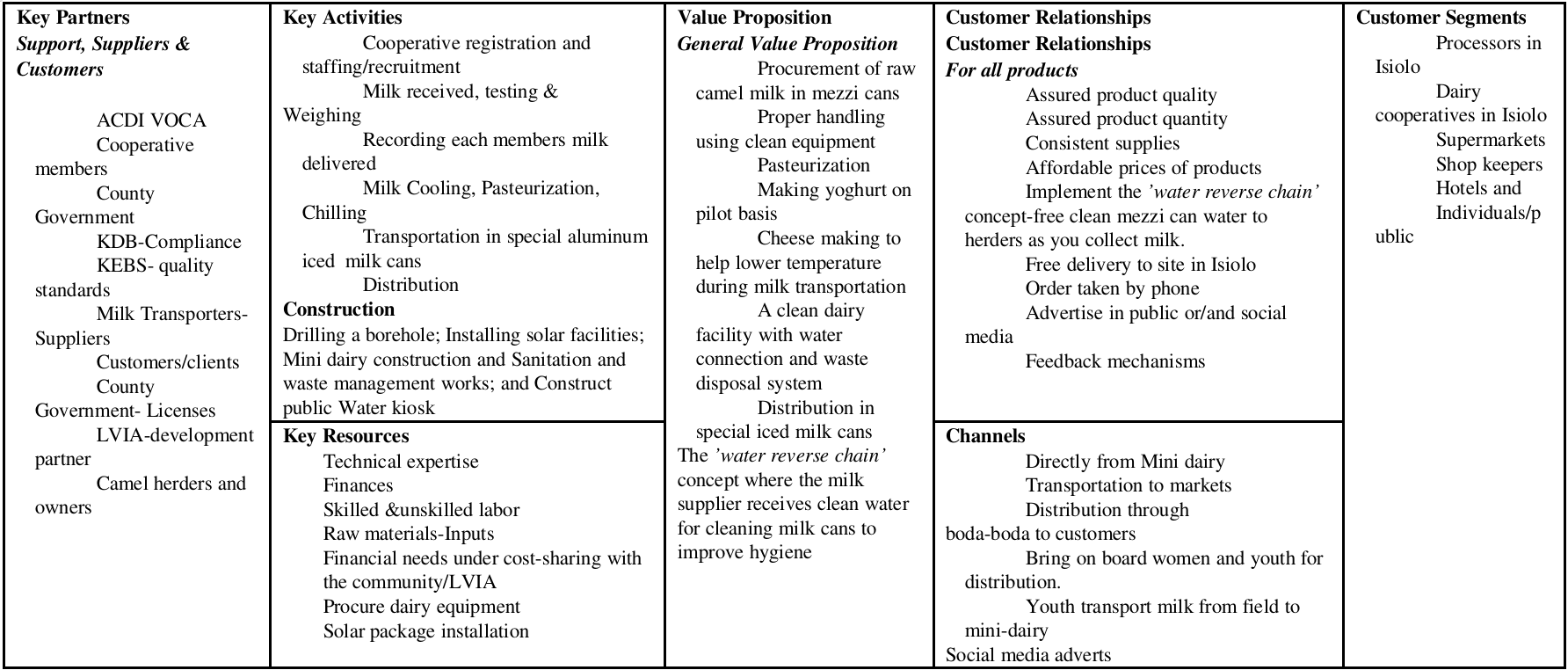
Business Model Canvas

annex 1: isiolo camel milk market system map
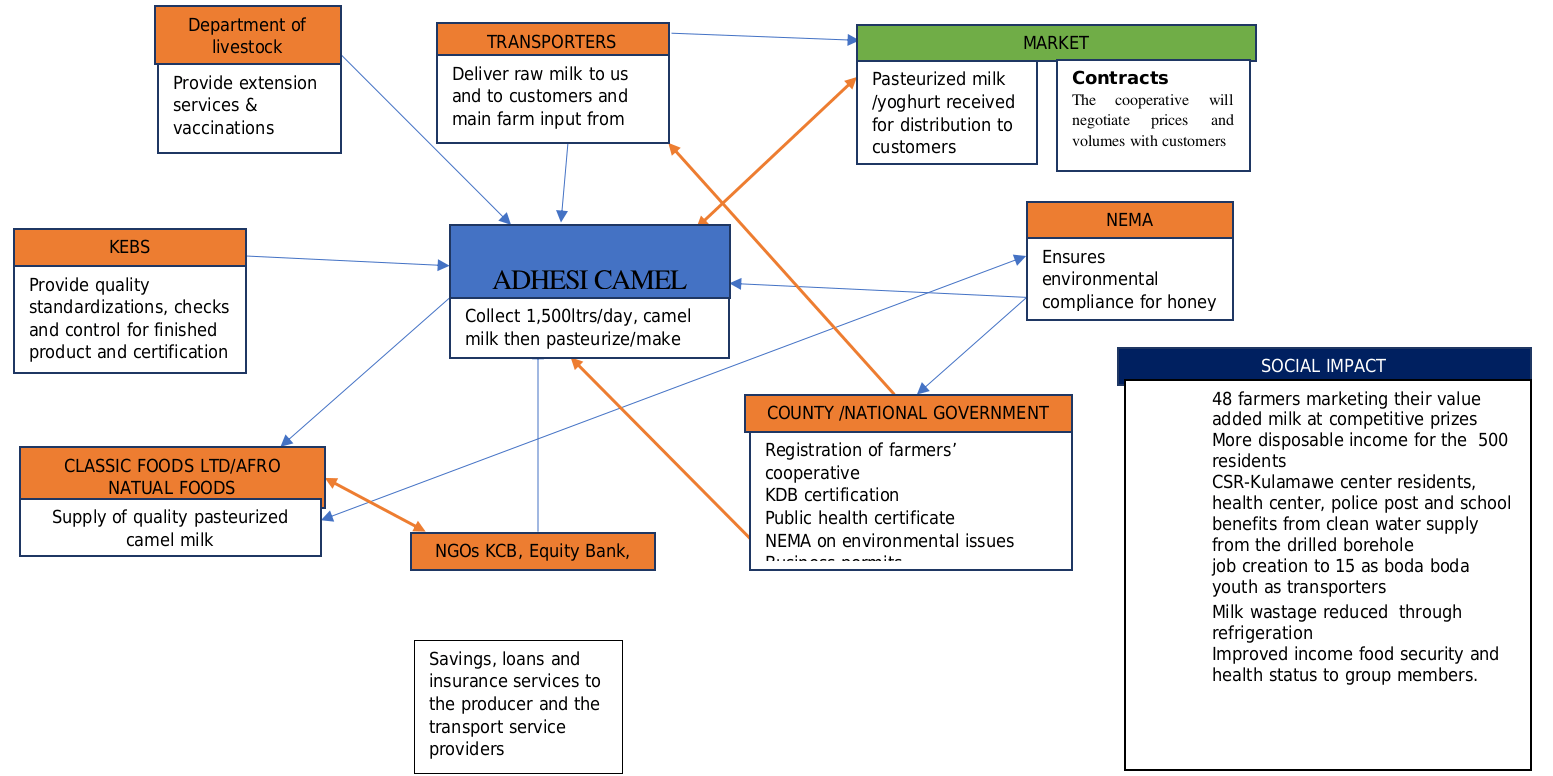
Irigiro Organic Avocado Group
Irigiro Organic Avocado Group Background Irigiro Mofarm organic fresh avocado...
Read MoreFFD Transnzoia County Dairy Value Chain NARIGP Project Report
FFD Transnzoia County Dairy Value Chain NARIGP Project Report https://www.youtube.com/watch?v=xeT87O5NEL4&authuser=1...
Read MoreMeet Fiona Dacha a women Domestic worker from Korogocho who is a beneficiary of WEZESHA Jamii project. She is a member of rainbow women group.
The group members have participated in the capacity building training and practical sessions which she says have changed their lives. She confesses, “When I heard about the program, I had mixed feelings. At first I thought it was a waste of time to attend the capacity building sessions at the expense of going to hunt for my usual general domestic work”.
This is how she earns her living, cleaning compounds, washing clothes, polishing shoes, washing dishes, cooking and other domestic chores. But after attending the capacity building sessions, things are now different.

“Personally, this is how I have benefitted,” she continues. “I no longer fear to advertise my work. I have no low self-esteem like before. I am proud to say I am a domestic worker’. Before, even her children and neighbors did not know what she did for a living. She thought domestic work was a lowly job to identify herself with and as such she would travel far away to other estates where she is not known like Eastleight, Buruburu, etc.
“WEZESHA Jamii project has exposed me to many opportunities. Today I am a proud member of rainbow women group”. Asked how this one aspect of being positive about her work and marketing herself openly has changed her life, she adds, “my income has tripled. Before I could not carry out domestic work within my estate for fear of being known what I do. My income per day on average was Kshs300.00. Today when I combine work opportunities in the neighborhood and those in other estates, my daily income has risen to on average kshs1, 000.00”. She justifies this with the fact that now people call her by phone to offer her services after openly marketing her services and giving her mobile number contacts. This was not the case before.
The project has given Rainbow members other skills that has boosted their income or cut down their house expenses such as soap making, saloon work, and cookery and housekeeping skills. She concludes by hoping phase two of the project will be approved to take them to the next level.
Keziah: Now a Proud Kenyan Dairy Farmer
Keziah: Now a Proud Kenyan Dairy Farmer Background Keziah Wangechi...
Read MoreFrom a Second Hand Clothes Dealer to a Dairy Cattle Service Provider
From a Second Hand Clothes Dealer to a Dairy Cattle...
Read MoreA case study of a proud Women Domestic Worker in the slums
A case study of a proud Women Domestic Worker in...
Read More
Development {FFD} was identified right at the beginning of the project implementation. The contract deliverables were to develop 5 training modules, organize a 2 day write-shop for selected women leaders
of the beneficiaries as well as rolling out 5 training sessions on governance and leadership for leaders of 40 groups with a membership of 1,000 WDWs/SSWTs in the project sites. A one day stakeholder’s workshop was held to give an opportunity to other project partners to enlist any identified gaps in the capacity building modules.
The modules included:
- Corporate group governance,
- Leadership and management of women domestic workers (WDWs) and women small scale traders {WSSTs} groups;
- Members’ services & service delivery to WDWs or WSSTs groups
- WDWs/ SSWTs rights and obligations;
- Lobbying, advocacy & networking
FFD came back in 2018 for mid-term internal evaluation and compiling some success stories before the project terminal evaluation.
Irigiro Organic Avocado Group
Irigiro Organic Avocado Group Background Irigiro Mofarm organic fresh avocado...
Read MoreFFD Transnzoia County Dairy Value Chain NARIGP Project Report
FFD Transnzoia County Dairy Value Chain NARIGP Project Report https://www.youtube.com/watch?v=xeT87O5NEL4&authuser=1...
Read More